These 12 Americans had the right stuff to be picked for NASA’s new class of astronaut trainees
Meet 12 of the coolest, most accomplished people in America — the members of
These impressive overachievers have studied cave slime on Earth and Gale Crater on Mars. They’ve worked on nuclear submarines and low-gravity research planes. They have built machines that can fly for five days straight and tested rockets headed for space. Half of them have served in the armed forces.
But they haven’t made it to space just yet. Starting in August, they’ll report to Johnson Space Center in Houston for a two-year training program. Then they’ll be eligible for missions aboard the International Space Station, the new
These would-be astronauts were chosen from among more than 18,300 applicants who hailed from all 50 states, the District of Columbia, Puerto Rico, Guam and American Samoa. That means their odds of being selected were less than 1 in 1,500.
Here’s what it took to make the cut:
Kayla Barron
This 29-year-old naval lieutenant from Richland, Wash., has a master’s degree in nuclear engineering from the University of Cambridge, where she studied as a Gates Cambridge Scholar. A former submarine warfare officer — one of the first women to serve on a Navy sub — she’s used to working in tight quarters surrounded by an inhospitable environment. Most recently, Barron worked at the U.S. Naval Academy as a flag aide, a right-hand-woman to the school’s superintendent.
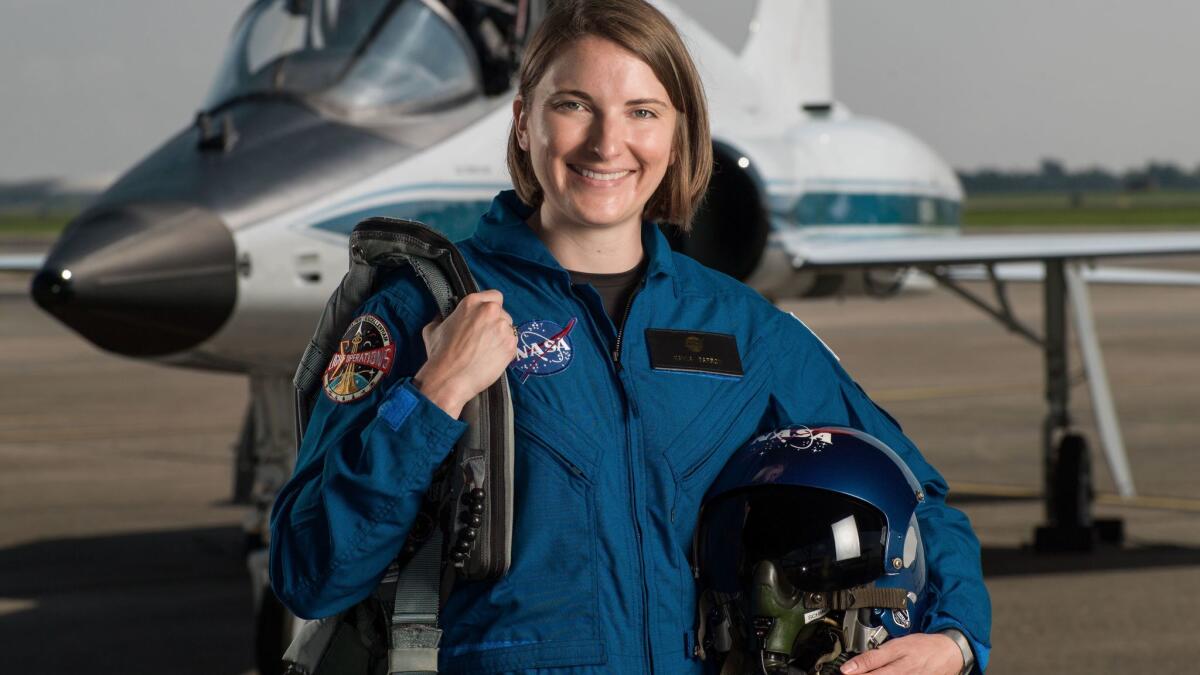
Zena Cardman
Cardman studies extremophiles — the organisms that live under the most extreme conditions on Earth. That includes hydrothermal vents at the bottom of the ocean and the walls of caves that never see the light of day. (Her current research at
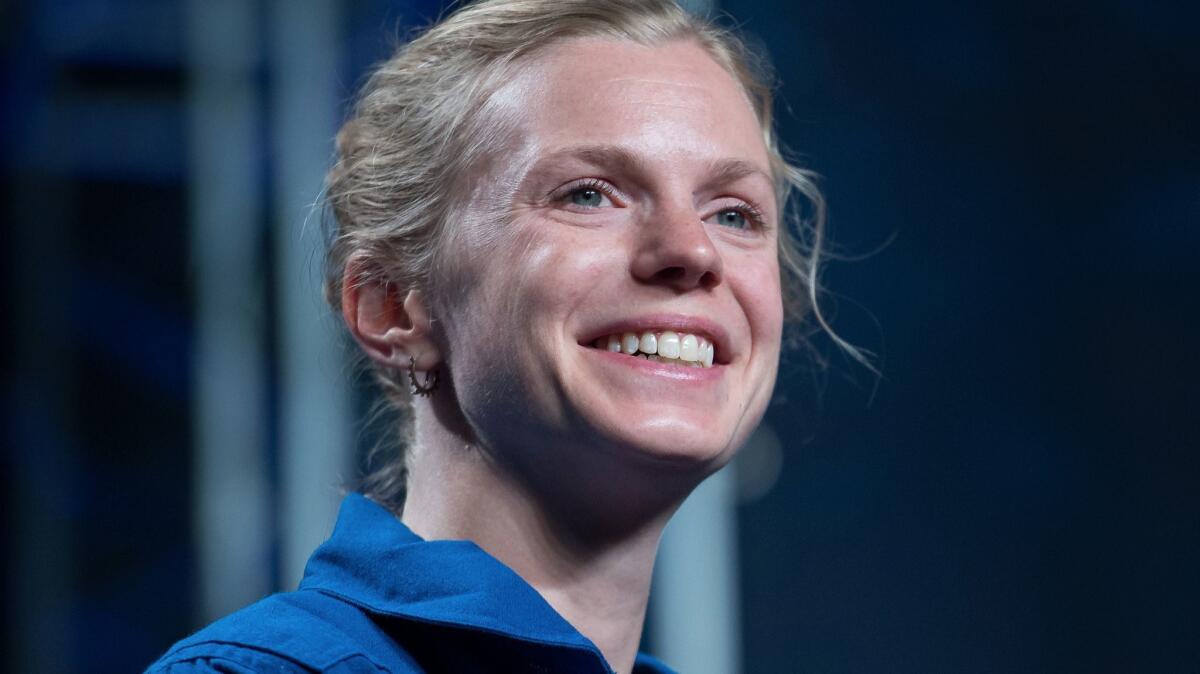
Raja Chari
Chari is a graduate of the Air Force Academy and the Naval Test Pilot School who also earned a master’s degree in aero/astro engineering at MIT. The 39-year-old lieutenant colonel is stationed at Edwards Air Force Base in Southern California, where he is the commander of the 461st Flight Test Squadron and director of the F-35 Integrated Test Force. A native of Waterloo, Iowa, Chari flew combat missions in Operation Iraqi Freedom.
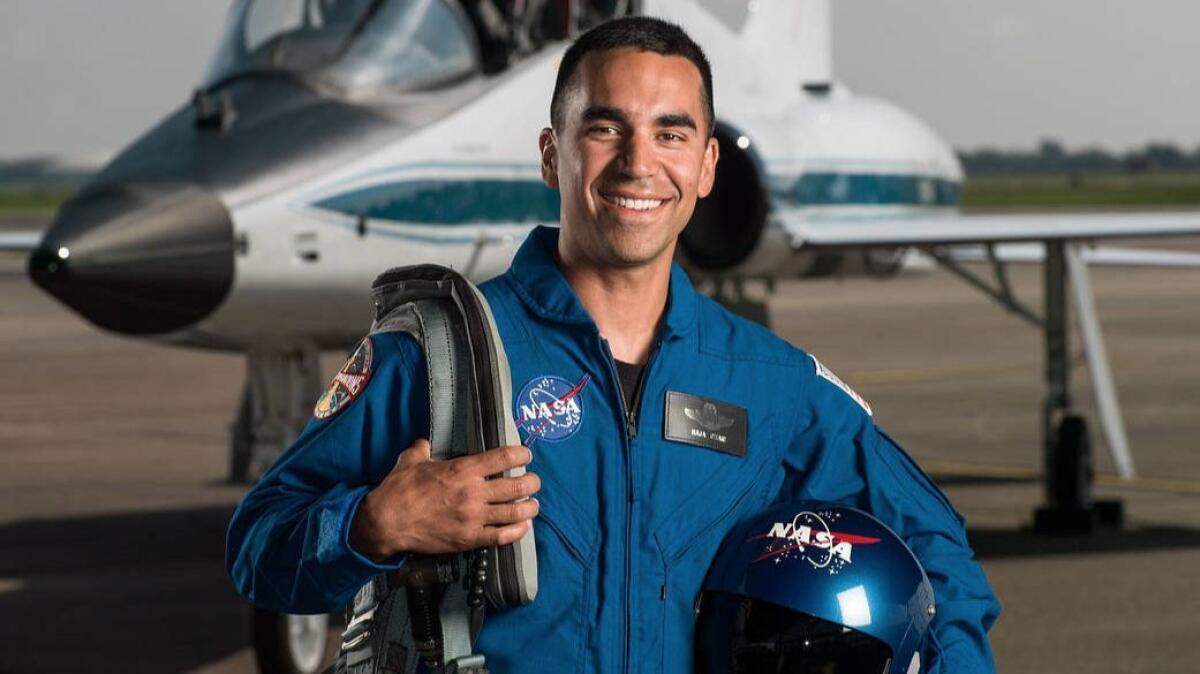
Matthew Dominick
Another alum of the Naval Test Pilot School, Dominick was deployed aboard the carrier Ronald Reagan when he learned he would be joining NASA’s new class of astronaut candidates. The 35-year-old is a lieutenant commander in the Navy with engineering degrees from the University of San Diego and the Naval Postgraduate School in Monterey.
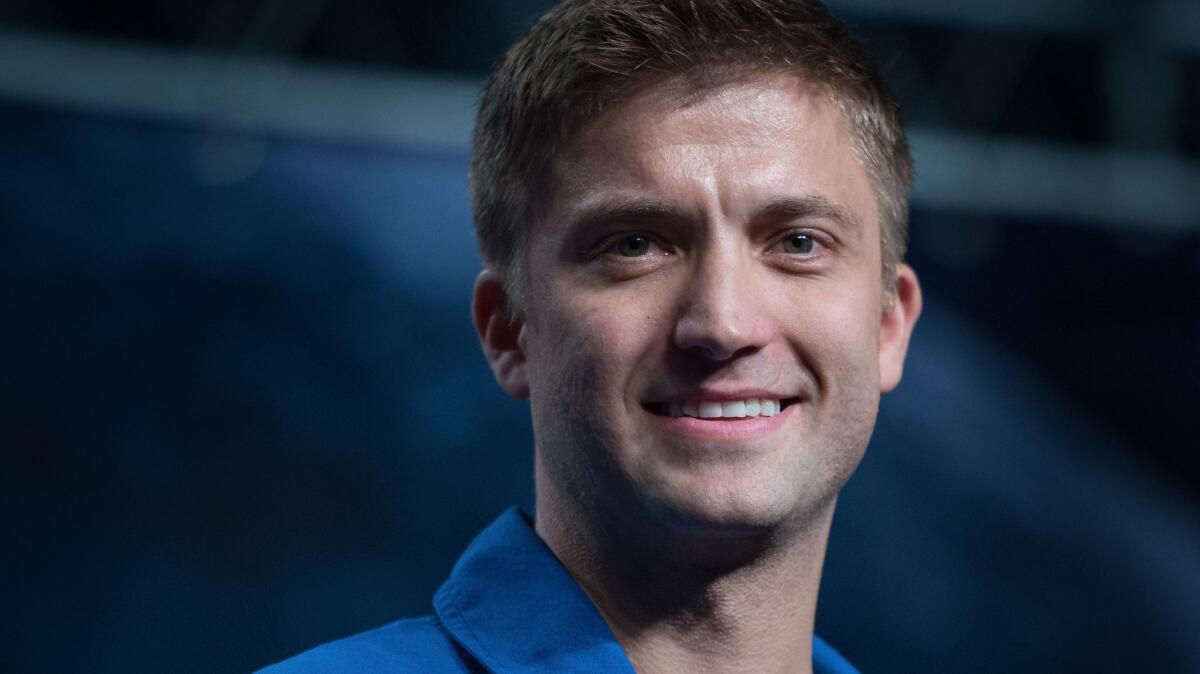
Bob Hines
This 18-year veteran of the Air Force and Air Force Reserves may have had an inside track to the astronaut program — for the past five years, he has worked as a NASA research pilot at the Johnson Space Center in Houston. More than 3,500 hours of his life has been spent in the air, in 41 kinds of aircraft. Hines, 42, studied aerospace engineering at Boston University and the
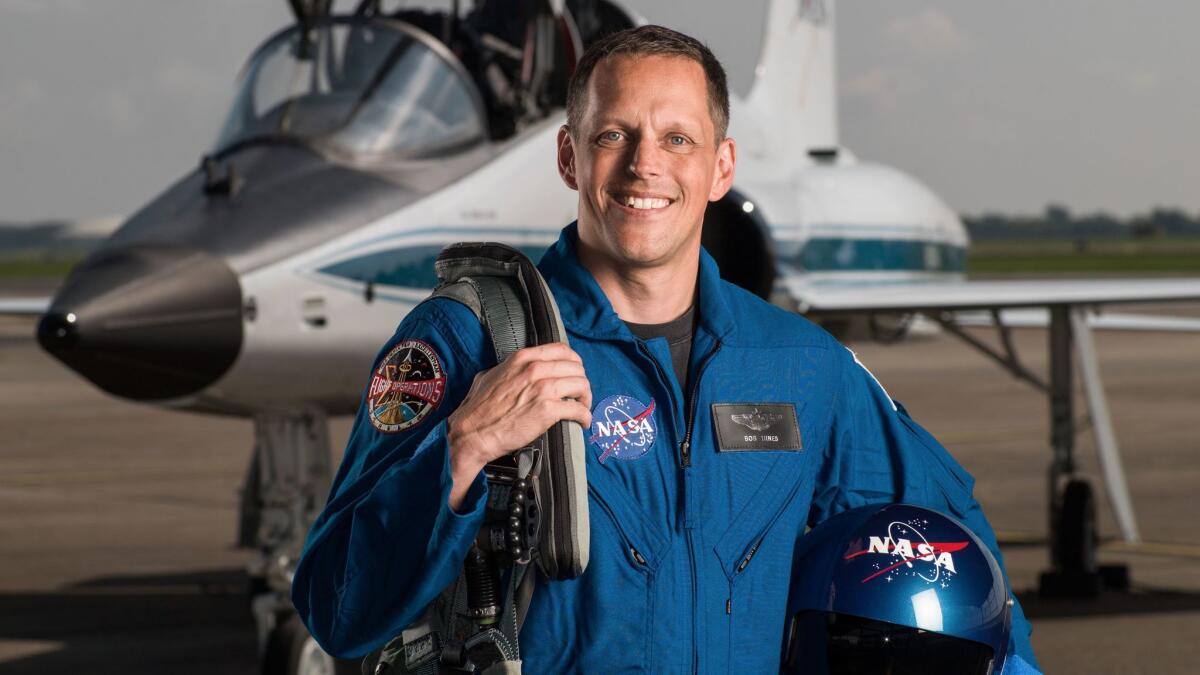
Warren Hoburg
Some might say there’s no better job than being a professor at MIT, but Hoburg will be leaving a faculty position there to train for his new career as an astronaut. The 31-year-old, who goes by “Woody,” earned his PhD at UC Berkeley and spent a year at Boeing before returning to MIT, where he went to college. Among other things, he led a group that designed an unmanned aerial vehicle that can take off from the roof of a moving car and stay aloft for five days.
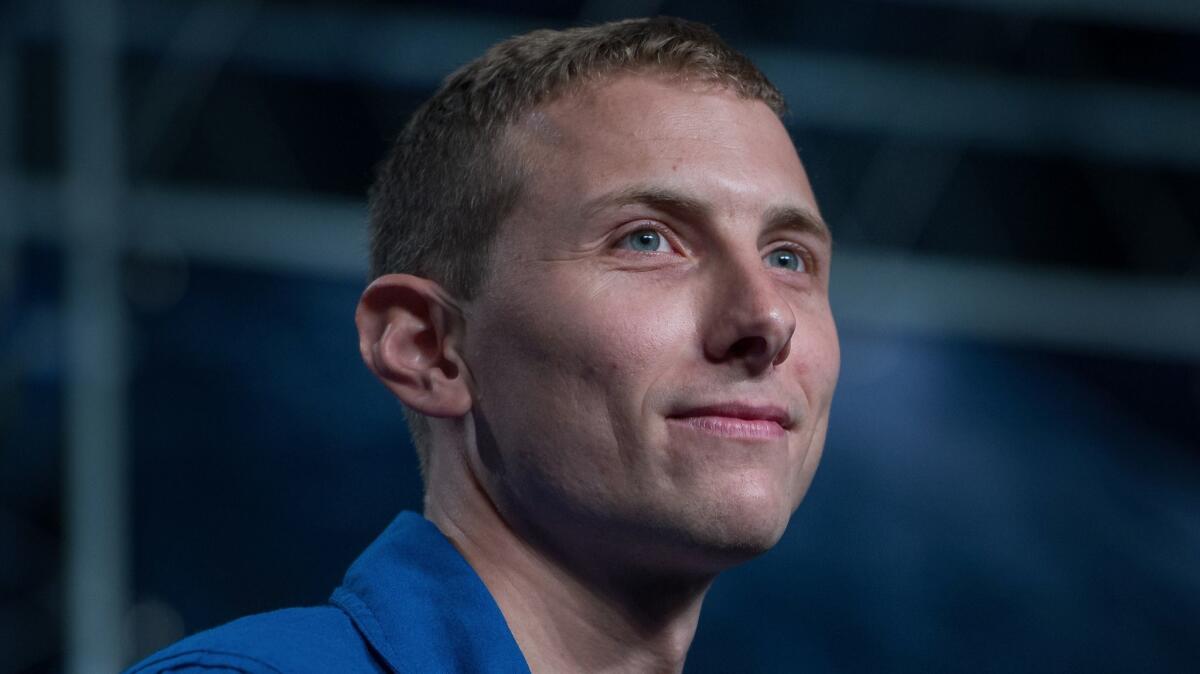
Jonny Kim
Dr. Kim took an unusual path to Harvard Medical School. A graduate of Santa Monica High School, he enlisted in the Navy and made his way onto a SEAL team. After proving himself as a combat medic (among other roles) in more than 100 missions — and earning a Silver Star and Bronze Star — he joined the ranks of naval officers and earned a degree in math from the University of San Diego. Now 33, Kim is training as an emergency physician at
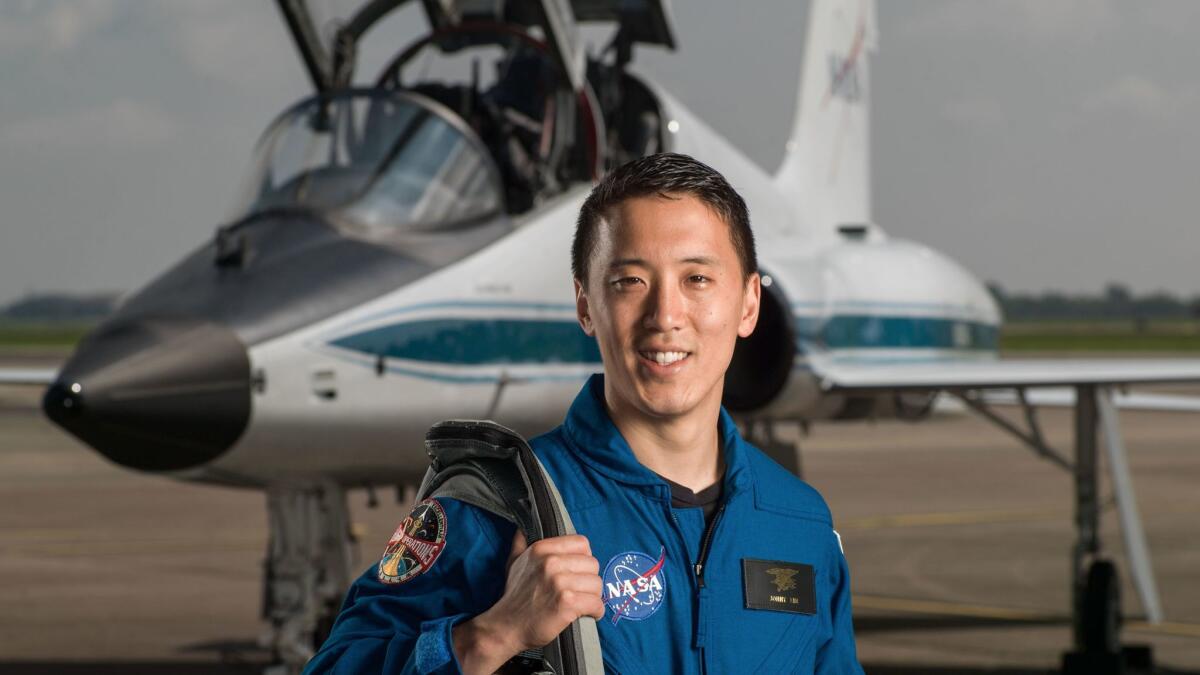
Robb Kulin
Kulin has worked at both ends of the Earth, catching fish in Alaska and drilling ice in Antarctica. His most recent job was at SpaceX in Hawthorne, where he made sure the company’s rockets were ready for launch. Kulin, 33, has a private pilot’s license and a PhD in engineering from UC San Diego.
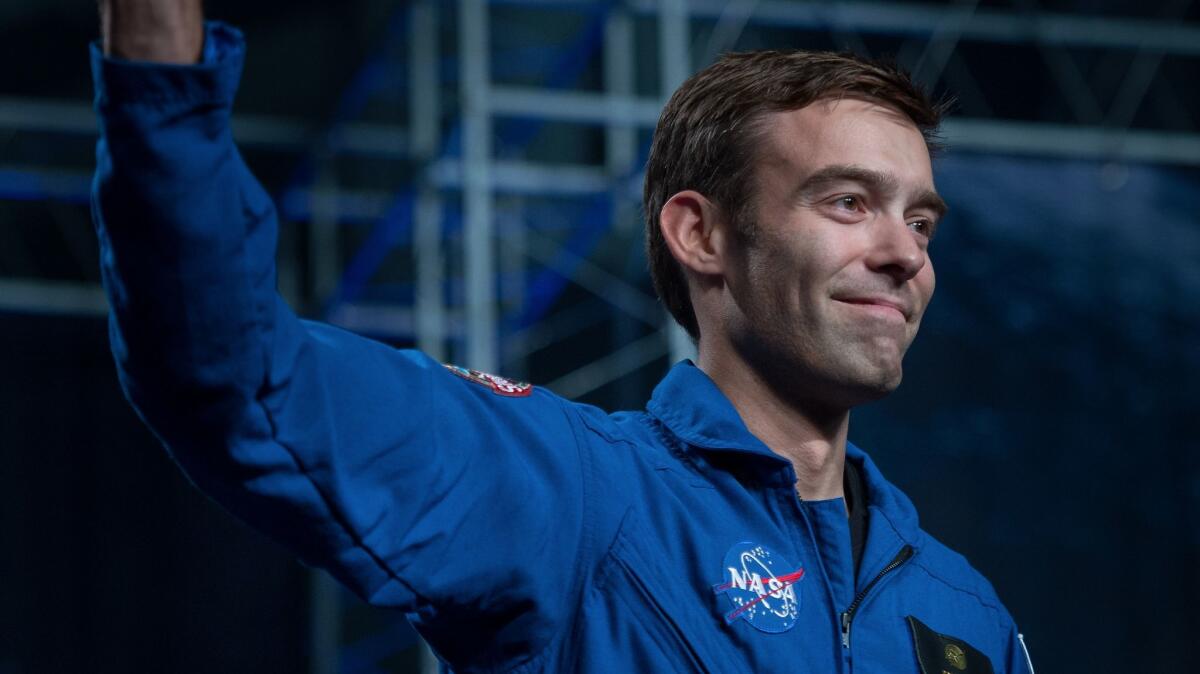
Jasmin Moghbeli
A major in the Marines, Moghbeli is based in Yuma, Ariz., where she tests H-1 helicopters. She’s used to spending time in the air — NASA says she has racked up more than 1,600 hours of flight time, some of which came over the course of 150 combat missions. Like many of her fellow astronaut trainees, Moghbeli attended MIT, the Naval Postgraduate School and the Naval Test Pilot School. She was born in Germany 33 years ago but calls Baldwin, N.Y., her hometown.
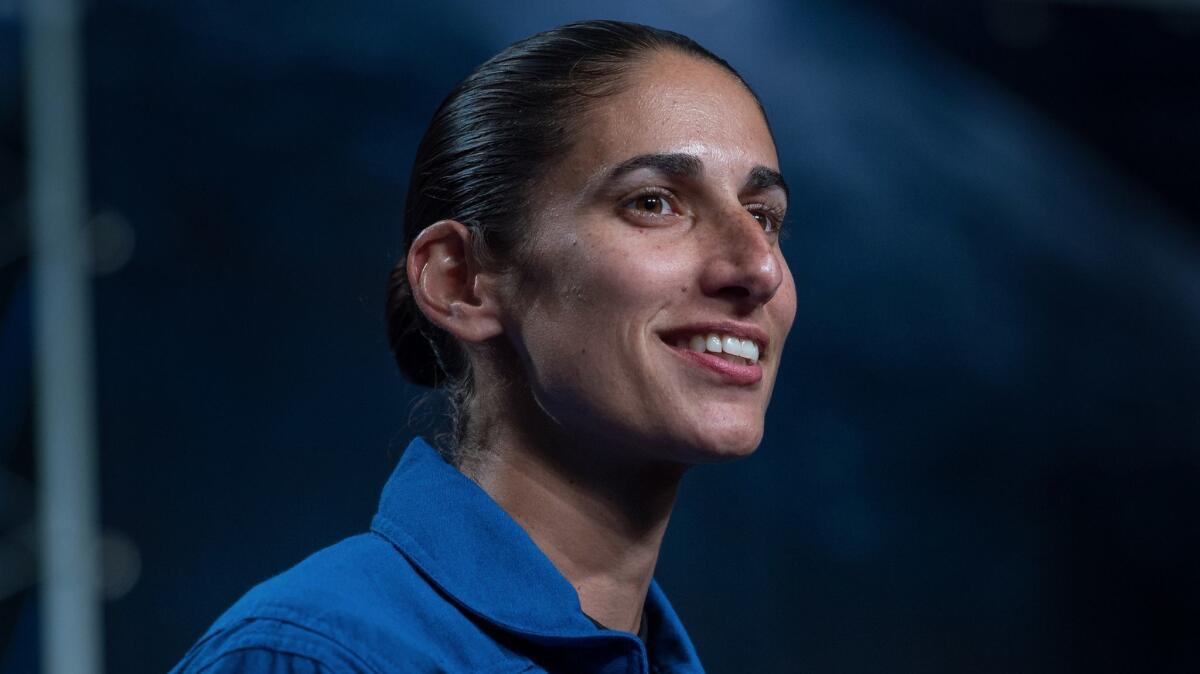
Loral O’Hara
O’Hara already has a long resume with NASA. While in school, she earned a spot in the space agency’s KC-135 Reduced Gravity Student Flight Opportunities Program, which gives budding researchers a chance to run their own microgravity experiments. She was an intern at the Jet Propulsion Laboratory in La Canada Flintridge and spent a summer as a research associate at Goddard Space Flight Center in Maryland. The 34-year-old now puts her engineering skills to use at the Woods Hole Oceanographic Institution coming up with ways to study extreme environments.
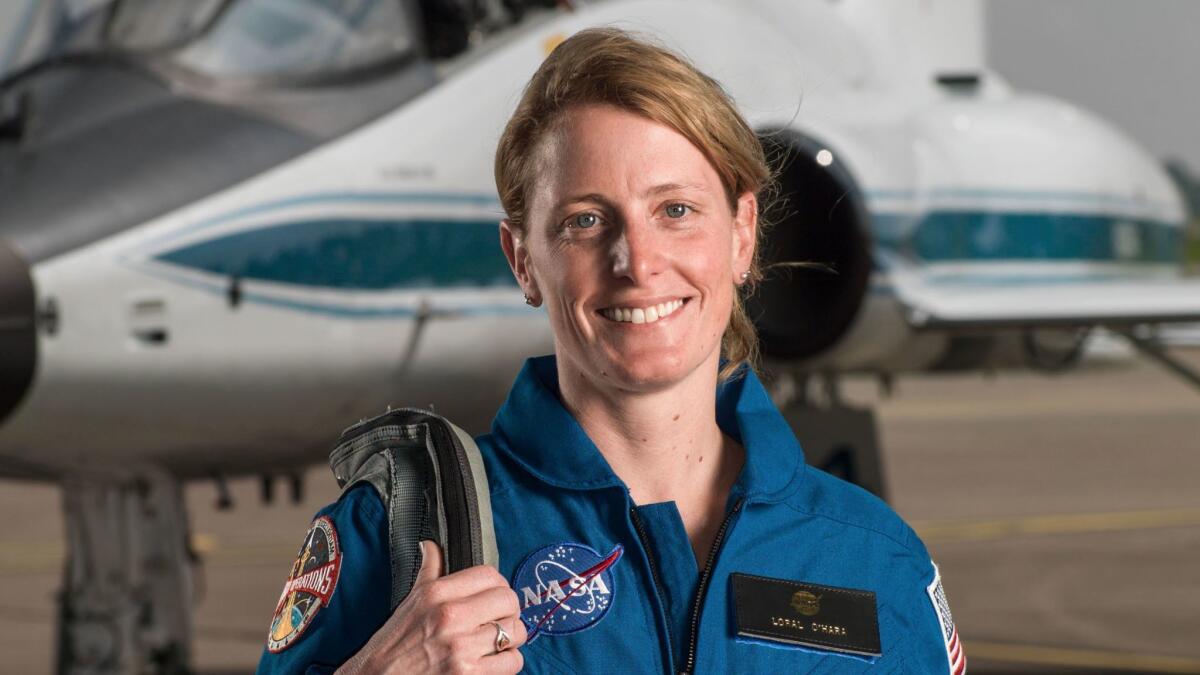
Francisco Rubio
Dr. Rubio’s career is a mix of military and medicine. He graduated from the U.S. Military Academy at West Point and earned his medical degree at the Uniformed Services University of the Health Sciences. Before starting medical school, Rubio (who goes by Frank) flew UH-60 Blackhawk helicopters in Bosnia, Afghanistan and Iraq. On the ground, the 44-year-old Army major has served as a family physician in Alabama and Colorado.
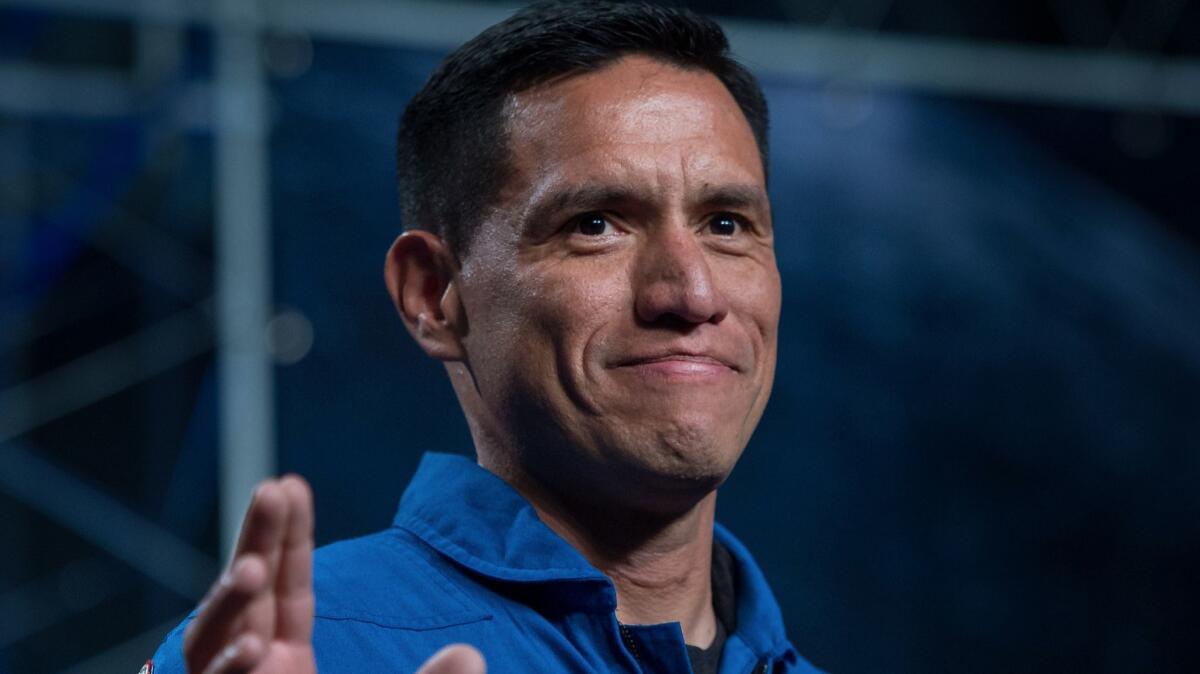
Jessica Watkins
Watkins may be a newcomer to NASA’s astronaut program, but she is already exploring Mars as part of the JPL team that operates the
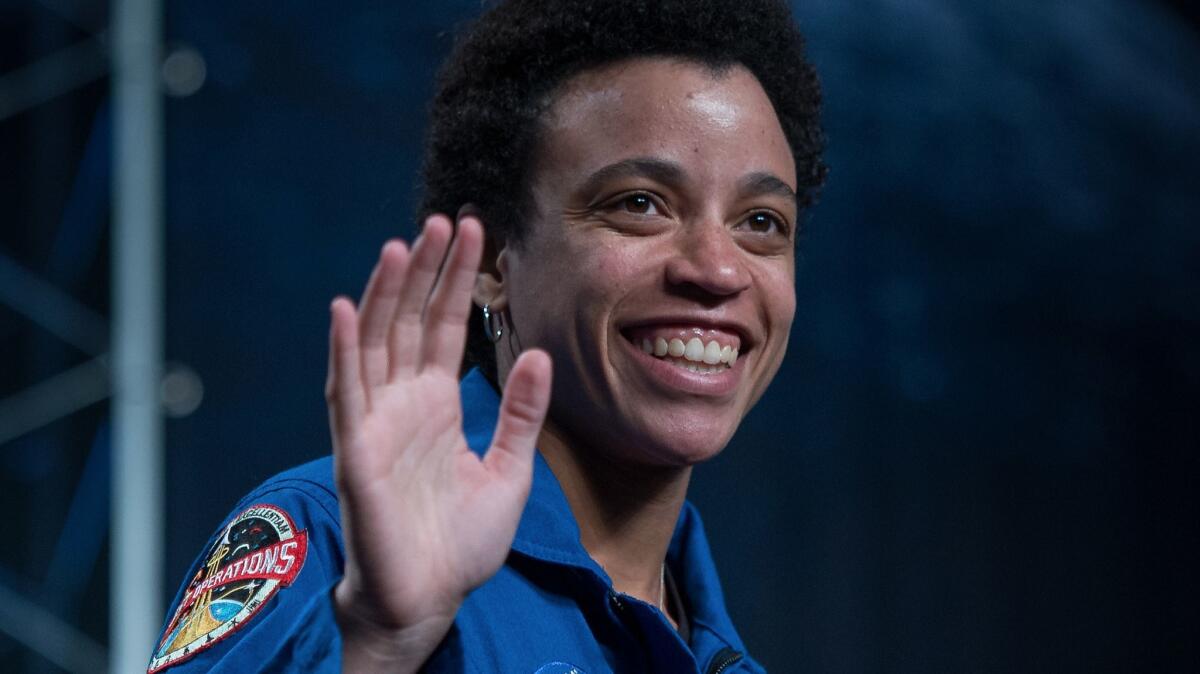
Follow me on Twitter @LATkarenkaplan and "like" Los Angeles Times Science & Health on Facebook.
MORE IN SCIENCE
Scientists have done what Einstein said was impossible — used relativity to measure a star's mass
Earliest fossil evidence of Homo sapiens found in Morocco, rewriting the story of our species
An ancient lake on Mars could have supported a variety of microbial life




